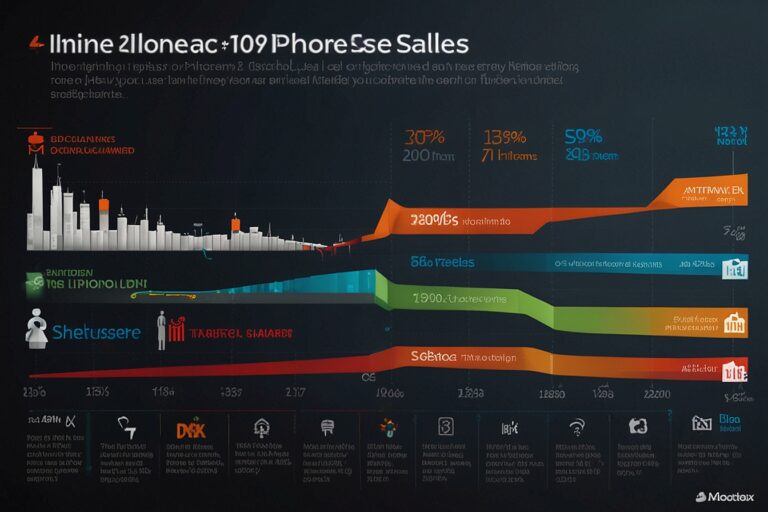
TL;DR
- Singapore has fined nine banks, including UBS and Citigroup, for failures related to a $2.2 billion money laundering scandal.
- The Monetary Authority of Singapore (MAS) concluded a two-year probe into the largest laundering case in the nation’s history.
- Assets seized included luxury homes, digital assets, and millions in cash tied to the Fujian gang.
- Ten Chinese nationals have been convicted; two ex-bankers face criminal charges.
- MAS says banks are taking corrective action and will be monitored for compliance progress.
Singapore Closes Largest Financial Crime Case on Record
The Monetary Authority of Singapore (MAS) has formally closed its investigation into a sweeping $2.2 billion money laundering case, the largest in the country’s history. The probe, launched in 2023, targeted a sprawling network of Chinese nationals tied to illicit funds routed through Singapore’s financial institutions, real estate, and digital assets.
The conclusion came with the announcement of S$27.5 million ($21.5 million USD) in total fines levied against nine banks, including UBS, Citigroup, and the local unit of Credit Suisse, now part of UBS.
Credit Suisse and Citigroup Among the Heaviest Hit
Among the nine penalized institutions, the former Credit Suisse Singapore branch received the largest single fine, amounting to S$5.8 million, due to what regulators described as severe lapses in anti-money laundering (AML) protocols.
According to Bloomberg, Citigroup’s Singapore operations also faced financial penalties for compliance violations, though smaller in comparison.
The other banks penalized have not been publicly named in detail but are said to be under ongoing regulatory observation.
“The failures uncovered reflect serious breaches of AML controls at some of the largest and most globally connected banks operating in Singapore,” MAS said in its statement.
Inside the $2.2 Billion Scandal
The laundering operation at the center of the case was allegedly run by 10 Chinese nationals, widely referred to as the Fujian gang due to their regional ties. These individuals were found guilty of laundering illegal gambling proceeds, foreign scam money, and other forms of illicit finance through Singapore’s financial system.
Assets seized by authorities include:
- Luxury real estate in prime districts
- Over $150 million in cash
- High-end vehicles and luxury watches
- Cryptocurrencies, including Bitcoin and Ethereum, stored in cold wallets
The gang operated through multiple layers of shell companies, offshore accounts, and crypto asset transfers designed to obfuscate the origins of funds.
Two former private bankers were also charged in 2024 for facilitating some of the transactions.
Singapore Money Laundering Case
| Key Metric | Detail | Source |
| Total Assets Seized | S$3 billion (US$2.2 billion) | MAS |
| Total Fines Imposed | S$27.5 million (US$21.5 million) | Reuters |
| Number of Convictions | 10 individuals from China | Channel News Asia |
| Banks Fined | UBS, Citigroup, others | Bloomberg |
| Largest Individual Fine | S$5.8 million (Credit Suisse Singapore) | MAS |
Regulatory Response and Institutional Reforms
MAS stated that the banks involved have committed to implement corrective measures, including:
- Enhanced customer due diligence (CDD) procedures
- Automated transaction monitoring systems
- Additional staff training and compliance audits
The regulator added that it will closely monitor the progress of these banks to ensure full remediation and prevent future lapses.
“Strong AML frameworks are non-negotiable in safeguarding Singapore’s reputation as a financial hub,” MAS emphasized.
Crypto’s Role in the Case Raises Concerns
One notable dimension of the case was the extensive use of cryptocurrencies for laundering proceeds. Digital wallets linked to the Fujian gang were found holding millions in Bitcoin, Ethereum, and other tokens.
Singapore, despite being crypto-friendly, has now renewed calls for tighter compliance measures in the digital asset space, especially after such a high-profile exposure.
The Monetary Authority has urged crypto service providers to implement rigorous KYC and AML protocols or face further restrictions under upcoming updates to the Payment Services Act.
Global Implications and Lessons for Financial Hubs
Singapore’s aggressive and successful crackdown sets a global precedent on how to handle large-scale money laundering in the digital age.
The scandal underscores the importance of inter-agency cooperation, cross-border surveillance, and real-time tracking of digital funds — especially as criminals increasingly shift to borderless, blockchain-based systems.
Experts believe the case will shape:
- Future financial regulation policies in Asia
- The role of crypto assets in illicit finance
- How private banking services are monitored for high-risk clients
What Happens Next
While the legal portion of the case has concluded, MAS has promised continued oversight over the institutions involved. Civil asset forfeiture proceedings are still underway for some of the seized items.
Singapore’s approach is likely to influence neighboring jurisdictions that are also dealing with crypto-related crime, including Hong Kong and the UAE.
In the meantime, the central bank will likely issue updated guidelines for financial institutions dealing with high-risk clients, offshore funds, and digital assets in the second half of 2025.




